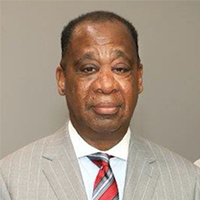Huntersville Criminal Lawyer, North Carolina
Sponsored Law Firm
-
 x
x

Click For More Info:
-
Hunt Law, PLLC
601 East 5th Street, Suite 100 Charlotte, NC 28202» view mapCriminal Defense, DUI, Traffic Violations SMART, AGGRESSIVE AND CLIENT FOCUSED
Our firm founded in 2008 and is located in Charlotte, NC. We are committed to providing the highest quality of compassionate, thorough & aggressive legal representation.
800-942-7610
Carlos R. Emory
✓ VERIFIEDAccident & Injury, Divorce & Family Law, Criminal, Consumer Rights, Immigration
C. Randy Emory was born and raised in the small, rural town of Wilson NC. Throughout his childhood, Mr. Emory displayed many leadership qualities. In ... (more)
Hannah R. Bell
Litigation, Estate Planning, Family Law, Criminal
Status: In Good Standing Licensed: 19 Years
Rush Price Watson
Traffic, Family Law, Divorce & Family Law, Criminal
Status: In Good Standing Licensed: 24 Years
Haden Edward Knox
Workers' Compensation, Accident & Injury, Divorce & Family Law, Criminal
Status: In Good Standing Licensed: 61 Years
Kristy Michelle Avery
Criminal, Traffic, Personal Injury, Family Law
Status: In Good Standing Licensed: 11 Years
William Louis Hunter
Estate, Divorce & Family Law, Criminal, Contract
Status: In Good Standing Licensed: 12 Years
Amelia Lynn Beisner
Commercial Real Estate, Federal Appellate Practice, Criminal, Real Estate
Status: In Good Standing Licensed: 35 Years
 Gregory Hunt Charlotte, NC
Gregory Hunt Charlotte, NC

